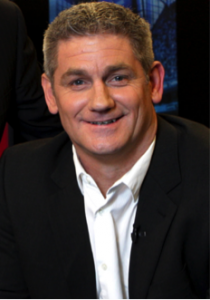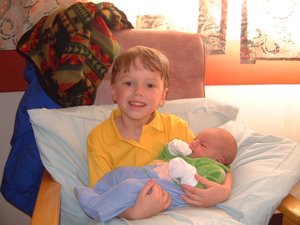Describes the nature of Alcoholics Anonymous (AA), other 12-Step programmes, and the Minnesota Model, how they developed, and the key assumptions that underlie their approach. (1,320 words)
‘The Street to Recovery’ by Kevin Kennedy
 I first posted this blog about Kevin Kennedy’s book about his recovery on Christmas Day, 2013. It was taken from an article from the now defunct Addiction Today. Kevin will be 25 years in recovery this October!
I first posted this blog about Kevin Kennedy’s book about his recovery on Christmas Day, 2013. It was taken from an article from the now defunct Addiction Today. Kevin will be 25 years in recovery this October!
‘Kevin Kennedy – Curly Watts from TV’s long-running Coronation Street, and so popular he drew in 22 million viewers for his TV wedding – has now been sober for 15 years. He shares his experience of alcoholism and rehab, strength of recovery and hope for the future with Addiction Today readers.
PROLOGUE: A FRIDAY IN AUGUST 1998
Sometime in the morning, I came round. I’d blacked out from the drink, with no memory of the night before. As soon as I opened my eyes, before I’d even focused on the room around me, I knew I had done it again. After all the promises, even swearing on the Bible and all the pleas for second chances, I’d still gone ahead and lost it. The four hideous horsemen—shame, remorse, self-disgust, and, worst of them all, fear—had found me, again.
‘It doesn’t work for everyone’—a take on 12-step approaches, by DJMac
 Yesterday, I was going through old Recovery Stories blogs (from the period 2013/4) when I came across this gem. It’s a guest blog by a GP who gives a personal view on professional perspectives of mutual aid. No doubt, it is just as relevant today as it was then.
Yesterday, I was going through old Recovery Stories blogs (from the period 2013/4) when I came across this gem. It’s a guest blog by a GP who gives a personal view on professional perspectives of mutual aid. No doubt, it is just as relevant today as it was then.
“‘Astonished’
I was astonished the first time I was taken to an NA meeting. I mean, really gobsmacked—you could have knocked me off my seat. The room was full of recovering heroin addicts; something I’d never seen in my 20 years (at that time) in practice.
I was both excited—at the possibilities—and ashamed at the fact that I didn’t know such places existed. It curls my toes to think of it now, but I had not referred my patients to them. That was a while back.
‘A Personal Story’ by Kerrie
 This very moving Story was written for our Wired In To Recovery website in August 2011. I published it on Recovery Stories in August 2013.
This very moving Story was written for our Wired In To Recovery website in August 2011. I published it on Recovery Stories in August 2013.
‘Hi, my name is Kerrie. I am 37 years old. Both my parents died as a result of heroin addiction. My mum when I was 8 years old and she was 28, and my dad when I was 15 and he was 43.
I grew up in the madness of their addiction; needless to say we were a very dysfunctional family. I don’t remember my parents ever getting any real support. The only people involved with our family were the police and social services.
I learnt at a very young age to tell them nothing, as I knew if I told someone, for instance, that my sister and I had been left alone or had not eaten properly for a few days, that my parents would get in trouble. And I was fiercely loyal and very protective of them.
Factors Facilitating Recovery: Mutual Support
 I continue with my series of blog posts relating to the factors that facilitate recovery from addiction, which I have detailed in the second last chapter of my eBook Our Recovery Stories: Journeys from Drug and Alcohol Addiction. These factors are also relevant to recovery from mental health problems.
I continue with my series of blog posts relating to the factors that facilitate recovery from addiction, which I have detailed in the second last chapter of my eBook Our Recovery Stories: Journeys from Drug and Alcohol Addiction. These factors are also relevant to recovery from mental health problems.
“Acceptance is just one aspect of the fifth key factor underlying recovery, being supported by others. People in recovery stress the importance of having someone believe in them, particularly when they don’t believe in themselves. They also stress the importance of having a person in recovery as a mentor or role model as they travel their journey.
Learning About Me: Paul
 In a previous series of blogs starting here, I have emphasised that the effects of a psychoactive drug are not just dependent on its biochemical actions in the brain. They are related to the drug, set (person) and setting (social context). The problems that arise from drug-taking, such as addiction and dependence, are not just related to the drug—it’s drug, set and setting. And the same is true of recovery.
In a previous series of blogs starting here, I have emphasised that the effects of a psychoactive drug are not just dependent on its biochemical actions in the brain. They are related to the drug, set (person) and setting (social context). The problems that arise from drug-taking, such as addiction and dependence, are not just related to the drug—it’s drug, set and setting. And the same is true of recovery.
In an earlier blog, I revealed how Brad had been told by a colleague that his drinking problem was not just due to alcohol. It was about him. In this blog, I’ll use the words of Paul to describe how he learnt the same truth in relation to his drug problem, a drug problem that was a ‘little’ different to what most people experience.
‘“It doesn’t work for everyone” – a take on 12-step approaches’ by DJMac
 Excellent blog from the DJMac website. Good discussion as well.
Excellent blog from the DJMac website. Good discussion as well.
‘What follows is a guest blog by a GP who gives a personal view on professional perspectives of mutual aid:
“Astonished”
I was astonished the first time I was taken to an NA meeting. I mean, really gobsmacked – you could have knocked me off my seat. The room was full of recovering heroin addicts; something I’d never seen in my 20 years (at that time) in practice.
I was both excited – at the possibilities – and ashamed – at the fact that I didn’t know such places existed. It curls my toes to think of it now, but I had not referred my patients to them. That was a while back.
‘Spirituality and recovery’ by djmac
 ‘Spirituality and recovery – do they go together? Hang on a second; what is spirituality and why are scientific articles on the place of spirituality in recovery falling into my inbox on a regular basis? Yes, I’m calling them scientific articles because they appear in peer-reviewed journals.
‘Spirituality and recovery – do they go together? Hang on a second; what is spirituality and why are scientific articles on the place of spirituality in recovery falling into my inbox on a regular basis? Yes, I’m calling them scientific articles because they appear in peer-reviewed journals.
I was at a graduate art show last night and got talking to a hospital chaplain about the nature of spirituality. I don’t come across hospital chaplains too much in my day-to-day life, but oddly enough, I’d been listening to one on Radio 4’s ‘Thought for the day’ slot only a day or two before.
I was quite surprised by the lack of religious content to the job. The minister on the radio was much more focused on supporting people as they faced challenges, on helping them get through and on finding meaning in the difficulties they were experiencing.
Last night’s chaplain explained that in the ‘old days’ the hospital chaplain was expected to be ‘a witness for Christ’.
Now the focus was on helping ill people and their families find spiritual health and address social and practical need too. It’s about holistic health. I talked about the growing evidence of the link between spirituality and recovery and began to realise as we talked that spirituality can be part of building recovery capital.
’12-Step Programmes Help Thousands, but Are Outdated and Sexist’ by Jessica Smith
 ‘Addiction is everywhere. The drug of choice may be alcohol, or it may be food, sex, romance, gambling or shopping, but the basic problem is the same; the inner void created by a culture that sells us the empty promise that reaching for external things will make us happy.
‘Addiction is everywhere. The drug of choice may be alcohol, or it may be food, sex, romance, gambling or shopping, but the basic problem is the same; the inner void created by a culture that sells us the empty promise that reaching for external things will make us happy.
When all that striving for money and possessions, and for status through jobs and relationships, still leaves a gaping hole inside us, many of us reach for the bottle, the chocolates or the credit card – and the cycle is complete.
In an article in the Guardian on May 30, Damian Thompson argued against the disease model for addiction, as developed by Alcoholics Anonymous. The roots of addiction, he wrote, lie in environmental factors, in the fact that “contemporary capitalism is ruthlessly targeting our mental reward circuits.”
Recovery Rocks: Gavin Crosisca
 A long overdue visit to Veronica Valli’s excellent blog Recovery Rocks, this time involving an Australian sportsperson.
A long overdue visit to Veronica Valli’s excellent blog Recovery Rocks, this time involving an Australian sportsperson.
‘Recovery Rocks this week with Australian rules footballer Gavin Crosisca. Gavin played 246 of Australian rules football with Collingwood before moving into coaching for over 25 years.
But despite his successful sporting career Gavin hid a 25 year drug problem from his teammates and fans.
He describes his addiction as being ‘a fire inside of him’ as it slowly destroyed his life, finances and family.
‘Unraveling the Mystery of Personal and Family Recovery: An Interview with Stephanie Brown, PhD’ by Bill White (Part 2)
 Stephanie Brown has written an excellent book on personal recovery, from which I have used some key sections in my blogs. She emphasises a number of paradoxes in recovery which are described here. There’s some powerful stuff below, which I had never really thought about until I read Stephanie’s work.
Stephanie Brown has written an excellent book on personal recovery, from which I have used some key sections in my blogs. She emphasises a number of paradoxes in recovery which are described here. There’s some powerful stuff below, which I had never really thought about until I read Stephanie’s work.
‘Bill White: Speaking of impact, you wrote a book called A Place Called Self: Women, Sobriety and Radical Transformation that has deeply touched many people. Could you share some of what you infused into that book?
Stephanie Brown: At the time I wrote A Place Called Self, I was deepening my understanding of paradox. Hazelden asked me to explore some of these paradoxes from the perspective of recovering women, although much of what I eventually wrote also applies to men.
‘The Street to Recovery’ by Kevin Kennedy
 Remember this guy? Well, he has a Recovery Story to tell, which you can read about in his new book. Meanwhile, here is an article from Addiction Today.
Remember this guy? Well, he has a Recovery Story to tell, which you can read about in his new book. Meanwhile, here is an article from Addiction Today.
‘Kevin Kennedy – Curly Watts from TV’s long-running Coronation Street, and so popular he drew in 22million viewers for his TV wedding – has now been sober for 15 years. He shares his experience of alcoholism and rehab, strength of recovery and hope for the future with Addiction Today readers. Pdf
PROLOGUE: A FRIDAY IN AUGUST 1998
Sometime in the morning, I came round. I’d blacked out from the drink, with no memory of the night before. As soon as I opened my eyes, before I’d even focused on the room around me, I knew I had done it again. After all the promises, even swearing on the Bible and all the pleas for second chances, I’d still gone ahead and lost it. The four hideous horsemen – shame, remorse, self-disgust, and, worst of them all, fear – had found me, again.
What Works in Treatment?: Adam’s Story
 In the second of our series on what works in treatment, we look at Adam’s experiences and views. Adam had a problem with alcohol, amphetamine and cannabis before attending a residential rehab in Northam, Western Australia.
In the second of our series on what works in treatment, we look at Adam’s experiences and views. Adam had a problem with alcohol, amphetamine and cannabis before attending a residential rehab in Northam, Western Australia.
‘I remember my first day in the rehab very well. I thought to myself, “What am I doing here? What have I got myself into?” I was very, very nervous, and along with the shakes and anxiety from coming off the alcohol, I was a right mess. However nervous I felt though, I had made my mind up before the implant operation that I was not going to drink or drug again. I was determined to do something about my addictions.
I did all the necessary paper work and was shown around, before being taken to my room. I was relieved to find I had a room to myself. I then sat on the end of the bed with the two garbage bags that contained my possessions, and had a good cry. I started to think about my family and I realised how much I missed them. Later that day, I was allocated a night to cook dinner and assigned a daily chore.
The Anonymous People: New Trailer Announcement
Filmmaker Greg Williams and The Anonymous People team put this message up on Facebook.
“After many comments and concerns about a few of the original sound bites chosen for film trailer that relate specifically to 12-step groups being misinterpreted and not reflective of the feature length film’s message – we have chosen to revise the film’s trailer.
The Anonymous People project team has deep respect and admiration for the long-standing, beautiful tradition of anonymity at the level of film. No footage in this film has been taken inside meetings held by 12-step fellowships. In addition, no living person is identified or identifies himself or herself as a member of a particular 12-step program and nobody on the project teams feels this needs to change.
Kathy’s Recovery Minute
“I’d like to stress that one day does not go by that I don’t think about the life I took. I don’t forget that a child grew up without her father and that a mother’s heart was broken because of my choices, including again my own mother.”
“I live a life now full of blessings and I tell my Story as often as I can, so if I can at least save one life, make one change to somebody when they hear my words, it will make at least some part of this tragedy and pain have some type of meaning for the positive. Thank you.” Kathy of CCAR (Connecticut Community for Addiction Recovery)
Simon’s Moment of Clarity
 In reading Simon’s Recovery Story, it seems that he had two major Moments of Clarity. Mind you, I’m sure he had many others along his recovery journey!
In reading Simon’s Recovery Story, it seems that he had two major Moments of Clarity. Mind you, I’m sure he had many others along his recovery journey!
‘One day, I received a letter from the head of faculty, asking me to come to see him in his office. I’d stopped attending lectures and tutorials, and I was only attending university to collect giro cheques from my mailbox.
I knew that my addiction had come out on top again, and that I’d need all my wits about me if everything was not all going to fall down around me – my brittle facade of lies and last chances and denial that I would retreat into every time I was challenged.





